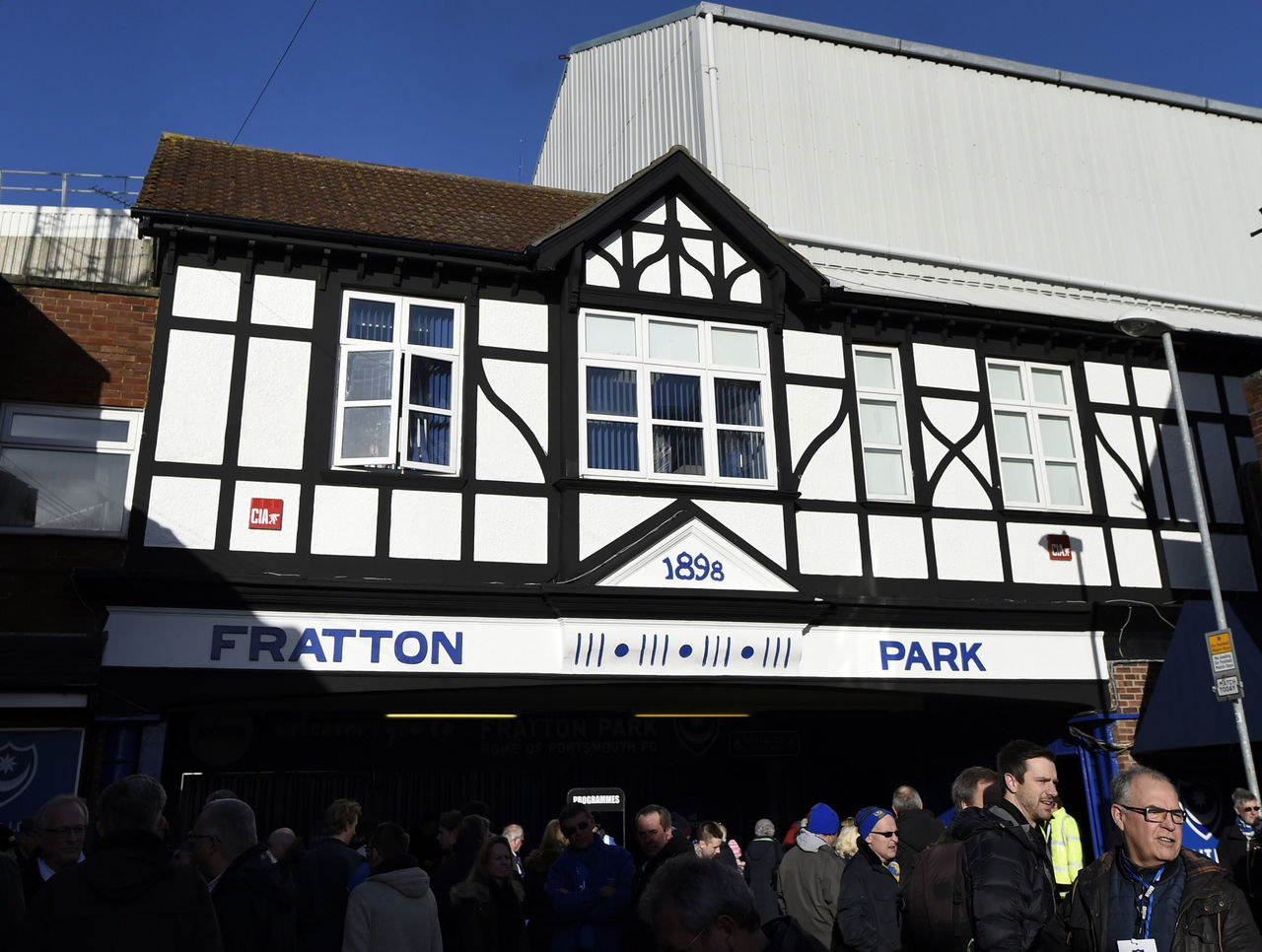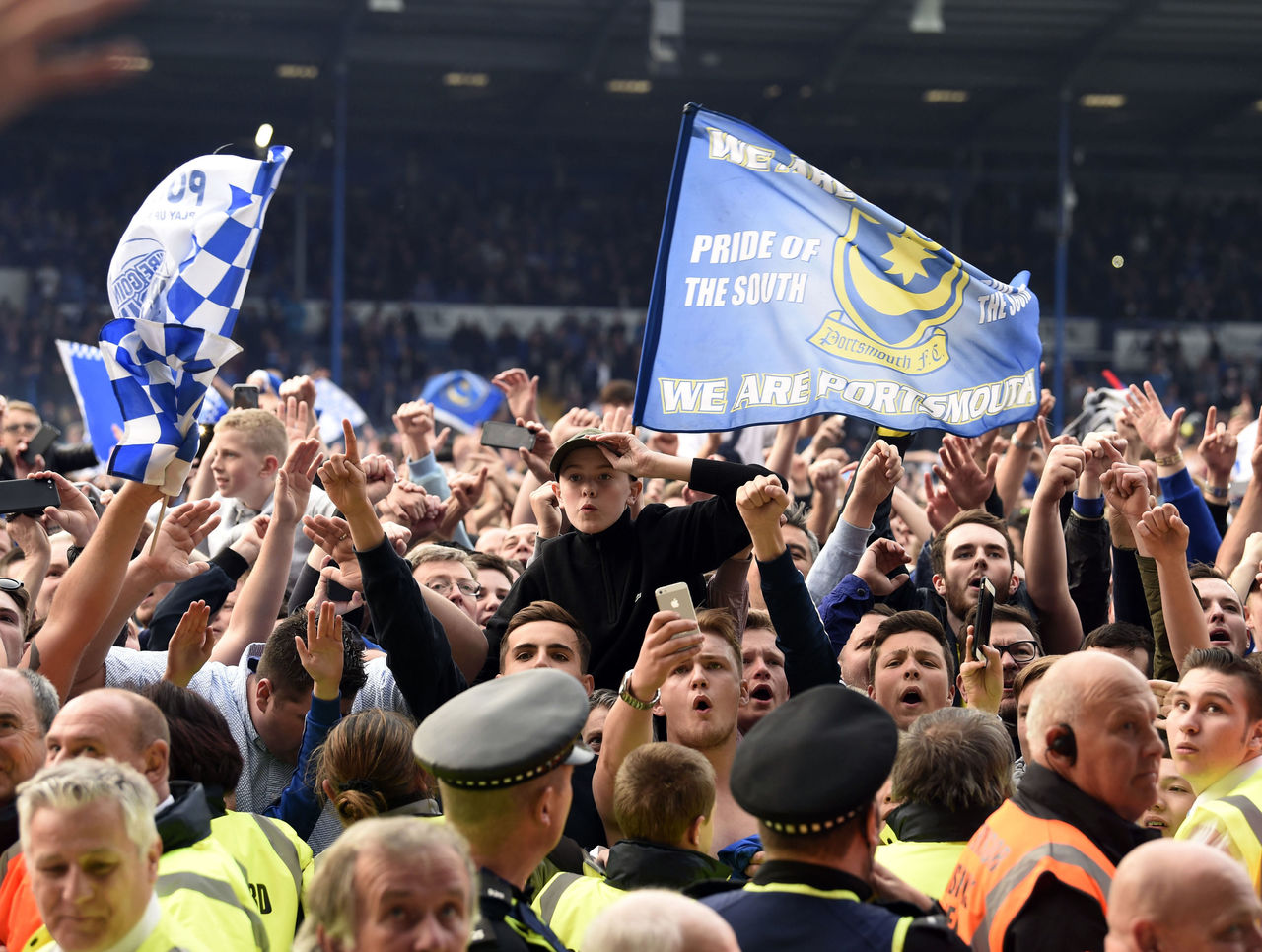Portsmouth fans right to risk Disneyfication in pursuit of fairy tale
Since lifting the FA Cup in 2008, Portsmouth's story has been a predominantly depressing tale of administration and relegations. But, after just over four years of being run by the modest yet vital resources from fan-led ownership, there are hopes of sketching out a cartoon-like, happy ending.
Before stepping down in 2005, Michael Eisner had revitalised The Walt Disney Company over 21 years. He expanded the business' portfolio - Miramax Films, ABC, and ESPN shuffled under its umbrella - and, most critically for the flagship enterprise, churned out commercial successes in film and theme parks. Now, after 81.4 percent of the Pompey Supporters' Trust agreed to sell to his Tornate company on Monday, he's looking to tell his greatest fable yet.
Eisner undoubtedly has deeper pockets than the 2,750 supporters who scraped together to save the club's existence and then lead it from 2013, so ambitions should revised, but the billionaire made no secret about a want to draw profits for himself, his children, and grandchildren from Portsmouth. There is also the inevitable loss of romance too: passionate fans that forged the Pompey Supporters' Trust through a love for the club have sold up to an American.
A wariness in surrendering ownership to foreign investors is understandable. Not only does a distrust of outsiders sadly permeate through the mindsets of some Brits post-Brexit, hoards of Portsmouth's contemporaries have been blighted by business folk who appear to be pursuing a vanity project when entering English football. Those formerly among the country's elite, like Leeds United, Nottingham Forest, and Blackburn Rovers, and many more with previously heavily bound ties to the local community have been shook to their core. Francesco Becchetti, who controversially produces budget, copycat versions of other networks' programming on his Albania-based and Italy-screened Agon Channel, has taken Leyton Orient from the verge of promotion to the Championship, to non-league football and, if unpaid debts aren't settled by mid-June, possible extinction.

There are other reservations over an American regime taking the reins aside from an ebbing of Portsmouth's intrinsically British identity (its colours are taken from the Armed Forces) and, following the 2016-17 season's promotion from League Two, renewed competitiveness. Talk of a new home for the club some 15 miles away from Fratton Park - still a raucous ground nine years removed from the 2008 FA Cup triumph and top-tier gatecrashing around that - is disturbing due to the loosening bonds the club would then have with the city, but more unsettling for fans is the fact that a shiny abode could camp in the same postcode as archrival Southampton.
If the club stays in Fratton Park, investment of around £5 million in the venue is paramount - otherwise there's risk of closure. It's already had its capacity reduced until repair work is completed for it to comply with Football League safety regulations. Before Eisner's takeover, only 18 percent of the required cash was set aside for this pressing makeover.
Eisner is primed for satirical depictions of him hungrily eyeing the summit of the lion kingdom while surrounded by giddy, blue-shirt wearing hyenas if things go kaput, but his potential villainry is clouded by supporters' concern with their neighbours' successes. While Pompey suffered financial decay and fell down the divisions, Southampton established itself as a Premier League outfit. Further west down the south coast, Bournemouth is winning fans as a top-tier club and, heading east, Brighton & Hove Albion will join the country's elite 20 teams in 2017-18. Portsmouth was used to being the leading outfit in this region, and is prepared to risk its recent solidity for something closer to the heady days of less than 10 years ago.
Right now, near-bottom of the Championship is the best Portsmouth can hope for in the current structure, and survival in a league rife with bloated player wages and clubs receiving parachute payments from Premier League relegation would be difficult. At that level, teams need to spend.

"In the 2014-15 season we looked at, Blackpool were the only side to make a profit because of their parachute payments - and they got relegated," respected fan Eric Coleborn told The Portsmouth News' Jordan Cross in favour of Eisner's camp.
"There were three clubs who lost over £20 million that season. How could a sustainable fan-owned club take those kinds of risks?"
Under the wing of a billionaire behind Disney, Paramount Pictures, leading U.S. television networks, and sports collectibles Topps, Pompey can aim higher.
After Portsmouth's recent bankruptcy and its plummeting down the rungs, you have to commend the fans deciding to twist when entering a welcome period of stability - and isn't going into the unknown part of the fun of being a football fan? If this experiment doesn't yield Premier League football, the travel and exposure to British sub-cultures from yo-yoing through leagues, and whimsical, short-term planning, makes for a turbulent yet oddly gratifying existence for fans - certainly more fun than the laughable "crisis" at Arsenal or sneaking stasis at the legion of middling Premier League clubs. Just as long as, like Leyton Orient et al, the club's future isn't risked in the commotion.
By installing itself as a Premier League mainstay, is Southampton missing out on the blissful bumpiness and scuttling, cartoonish existence at Portsmouth? Pompey's trip certainly seems the more thrilling ride.
(Photos courtesy: Action Images)